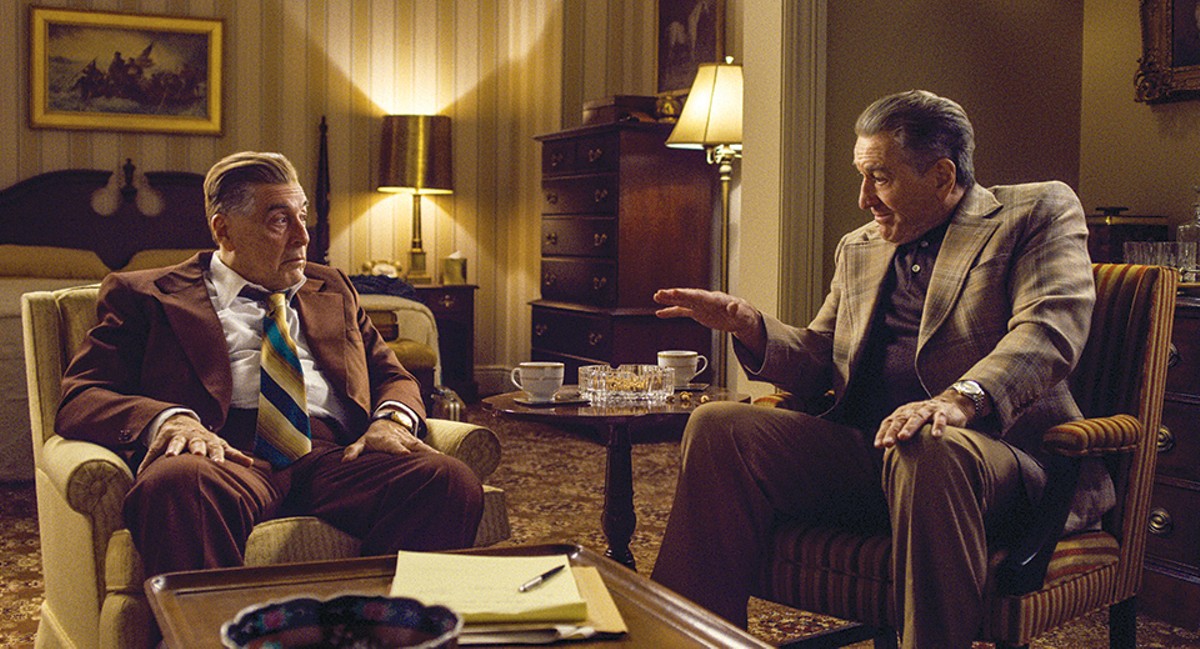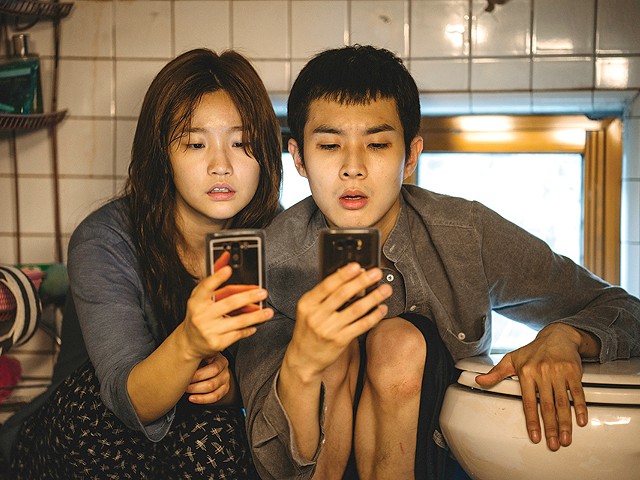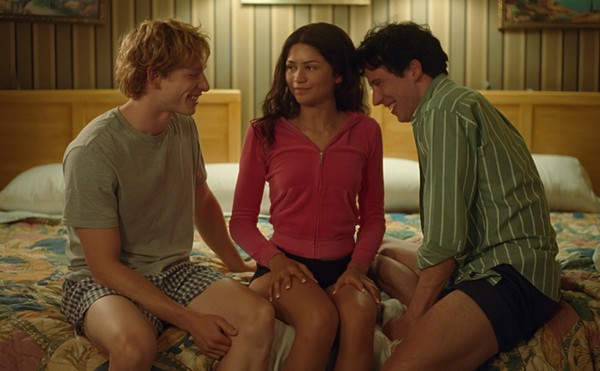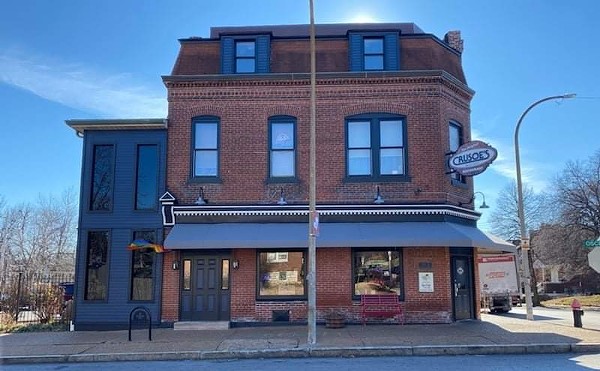In the 1990s, Martin Scorsese made two films about mob culture, Goodfellas and Casino, each of them an encyclopedic display of cinematic technique from a supremely confident filmmaker who used every scene to show off his mastery of the medium: sweeping camera shots, meticulously busy long takes and daring, flashy editing that could flip his stories through time and space or recreate the scattered thoughts of a man on a cocaine binge. Goodfellas was a Horatio Alger tale turned corrupt, depicting the seduction and near-destruction of a young man drawn into the underworld. Casino was more melancholy in comparison, the story of a middle-aged mobster becoming disenchanted by the gaudy life he's chosen. Significantly, Scorsese drew inspiration not from other crime films but from Jean-Luc Godard's Contempt, a film about a failed marriage and disappointment.
The Irishman will inevitably be categorized as the final entry of a trilogy begun by those earlier films, but while there is common ground between all three, the new film is a more reflective work, an aging man's summation of a life in the mob, having long abandoned the naïveté of youth and the dissatisfaction of middle age. The pyrotechnics and cinematic wizardry are abandoned, replaced by a sense of sober reassessment. It's a vast, expansive film, spanning more than half a century, but it's marked by a solemn acceptance, a sense that its protagonist views his past not with regret but with resignation.
Based on Charles Brandt's book I Heard You Paint Houses (in a curiously Godardian touch, Scorsese flashes the book's title onscreen as the sole opening credit), The Irishman is the story of Frank Sheeran (Robert De Niro), a truck driver who found himself in the good graces of Pennsylvania mob boss Russell Bufalino (Joe Pesci) in the 1950s. With the election of John F. Kennedy in 1960, the underworld began to solidify their influence in politics and Sheeran was placed in the service of Teamsters Union boss Jimmy Hoffa (Al Pacino) during the latter's most turbulent years as a labor leader.
Hoffa's rise and fall provide the dramatic structure of the film, but they're shown with detachment. As played by Pacino, Hoffa is too mercurial to tell his own story, so Scorsese pieces it together from other angles, from the mob bosses who keep a careful eye on him and from Sheeran, who can keep an emotional distance from him even while acting as a close friend. One of the hardest things about organized crime, the film suggests, is the damage it does to loyalty and friendship.
Specialists on the Hoffa case have argued that Sheeran was a self-serving con man whose explanation of Hoffa's death simply fails to match up with the facts. They may be right, but their argument is irrelevant. The Irishman is a film about memory and guilt, and Frank is telling his story, flaws and inaccuracies notwithstanding, the way he remembers it. It's his confession, a mea culpa from a man who had a privileged view of the secret history of post-WWII America as he tries to sort out the fragments of his past.
Much has been written about the digital de-aging that allows the cast to play younger versions of themselves, but the results (with the exception of De Niro in his earliest scene) are never a distraction. In theory, the technique could be a gimmick, but in Scorsese's hands, it adds depth and mileage to the characters, letting the actors form an emotional bond as they interact at multiple ages and over decades.
It's also a reunion of sorts for a group of actors whose careers have been tied in with the gangster film for more than 40 years. Godfather veterans Pacino and De Niro, who have rarely worked together before (most notably in the overrated Heat) bond like an old couple who have been together so long that they can predict each other's movements, but the film is stolen from them by Joe Pesci. Pesci, largely absent from the screen for the last twenty years, plays his power-broker role like an elderly grandparent, exuberant with tenderness but with a ruthlessness that he never has to bring to the surface (Bufalino was known as "the Quiet Don"). The supporting cast is equally impressive, with Harvey Keitel making a quick appearance and Anna Paquin providing a severe, censorious presence as Sheeran's daughter.
In The Irishman, Scorsese follows his characters through half a century. We see them mature and weaken with age. We see their children grow into adulthood. We see partnerships and betrayals, successes and failures. The film keeps its sights on Sheeran and his passage through the intrigues and power struggles of his era, remaining intimate yet throwing light on the larger events along the sidelines. In its wide range and complexity, it merits comparison not just with Scorsese's early studies of mob loyalty but with the grandest epics of its genre, the Godfather films and Sergio Leone's underappreciated Once Upon a Time in America. With these films, the gangster genre abandons its early "crime doesn't pay" tradition and takes the proportions of an epic, rewriting American history from its darkest corners.






